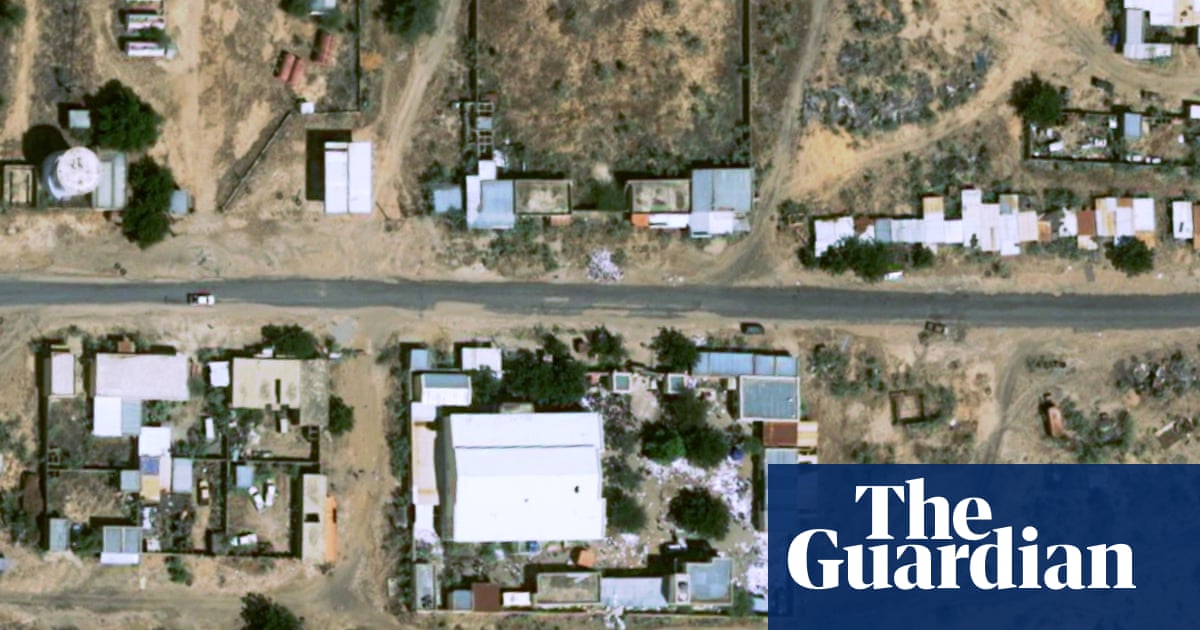Thomas McMullan’s debut novel, The Last Good Man, was a darkly unsettling post-apocalyptic fable about moral puritanism and the perils of mob rule. Set in an isolated Dartmoor village, it was commended by Margaret Atwood as “a Scarlet Letter for our times” and won the Betty Trask prize. His follow-up, Groundwater, opens in similar style, with its protagonists fleeing a city in favour of rural seclusion, but this time his story is rooted in a more prosaic and recognisable present.
An unexpected inheritance has spurred John and Liz to trade in their rented flat in London for a remote house by a lake. After years of trying unsuccessfully for a baby, their relationship strained, both hope that the change will shift something inside them. Meanwhile, though most of their furniture is yet to arrive, they must prepare the house for Liz’s sister Monica and her family, who have invited themselves to stay.
From the opening pages McMullan stokes an unambiguous sense of foreboding. It is August and the weather is stifling. Walking by the lake John encounters a baby deer, struggling to stand on an injured leg. The next day after breakfast, Monica’s children find the fawn dead on the doorstep. A stranger claiming to be a local warden materialises on their land and invites himself to stay. No one thinks to check his claims. When three students from a local campsite also contrive to inveigle themselves into the group, something terrible, it seems, must happen.
Reading Groundwater, I was repeatedly reminded of Chekhov’s famous exhortation that one must not put a loaded rifle on the stage if no one is thinking of firing it. The warden, Jim Sweet, tells John and Liz about the caves deep below the surface of the lake, miles and miles of unmapped tunnels snaking through the limestone. Liz is haunted by the memory of a dog she watched dying in the hallway outside their London flat. She stares at the walls of trees around the lake and thinks of the California wildfires on the news: “All that burning, a thousand things dying.”
Ominousness is piled upon unease and yet McMullan meets his own challenge only with the humdrum. Terrors are proved baseless. Confrontations blaze briefly and fizzle out. Unable to bring themselves to say what they are really thinking, the adults conduct long and often mundane conversations about inconsequentialities, while the twin interior monologue that shifts often confusingly between John and Liz adds little insight or forward propulsion to the narrative. Insufficiently differentiated, their voices blur: though we spend much of the novel inside their heads, their true selves remain opaque, unformed, out of reach not only of themselves but of the reader.
Liz, a writer, is working on a scheme to monitor the black rhinos in a national park in Kenya, but “she hadn’t been to the national park herself … everyone was remote”. The same sense of remoteness, of a reality half-understood but never experienced, pervades these pages. Meanwhile a second intercut narrative, in which dream-like versions of John and Liz draw items including a crystal decanter, a crutch and a child’s hobby horse from the waters of the lake, adds a baffling dollop of mysticism to proceedings.
As I read on, my thoughts kept returning to another novel set by a lake, Sarah Moss’s Summerwater, and not only because of the powerful echo in the title. Like Groundwater, Summerwater, told over a single rain-lashed day in a lochside holiday park in Scotland, is preoccupied with the quotidian, exploring through its 12 narrators the fissures and fractures that open in relationships, the certainties brandished like weapons against fear and vulnerability, the joys, yes, but also the small, terrible failures of courage and understanding.
Why, then, does Moss’s novel triumphantly succeed and McMullan’s never take flight? It helps that Summerwater’s simmering tension finally explodes into catastrophe, while Groundwater swerves perplexingly away from climax and sputters out. But it is Moss’s astonishing acuity, her uncanny ability to see inside the human heart, that lends her work such power. It is much, much harder than she makes it look to draw readers deeply into the small dramas of small lives, harder still to find the universal in the particular, to draw fresh and meaningful patterns between people and landscape, between age-old cycles of existence and the insistent demands of the here and now. Moss manages it with flourishes of sly humour that both leavens and intensifies the horror to come.
McMullan’s novel would definitely have profited from a few more laughs. Instead, in striving for an elusive profundity, he reminds us how strikingly difficult it is to spin gold from straw, and how very rare and precious are those Rumpelstiltskin writers who show us how it’s done.

 3 months ago
41
3 months ago
41

















































